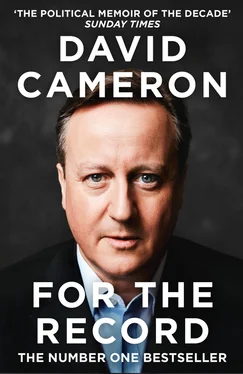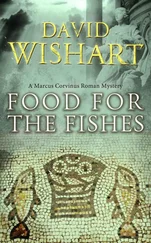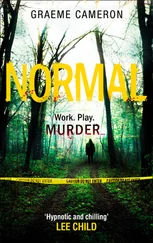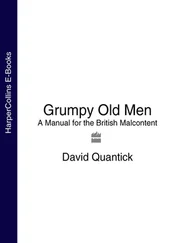The long-term consequences of my drugs bust, however, were wholly beneficial. This was the shock I needed. First, I knew that one more misdemeanour would mean curtains for my time at Eton. Next, I realised that I needed to stop moping about lagging behind my brother and make my own way. Crucially, instead of drifting academically I needed to make a greater effort. It was time to pull my finger out.
My O-level results were, for Eton, distinctly mediocre. But as soon as I got going in the lower sixth year – ‘B block’ at Eton – I was a student transformed. I loved my subjects (history, economics and history of art), I adored my teachers, and my results started to improve rapidly.
Great teachers are the secret to any great school, and Eton is particularly blessed. The reason for singling a few out is that they so inspired me – including when it came to politics – that they really changed my life.
Michael Kidson, a wood-block-throwing eccentric, was a superb history teacher who rejected all forms of Marxist determinism and unashamedly taught the ‘great men’ version of history. He brought the nineteenth century alive. Brilliant but biased, he thought Disraeli was an utter charlatan and all politicians after the fall of Lloyd George, with the exception of Churchill, pygmies. His love for Gladstone was such that when he read the account of the grand old man’s death in Philip Magnus’s biography, tears streamed down his cheeks.
But while history was a subject I loved, and history of art the one from which I remember most, it was economics and politics that really set me alight. Here was something that was relevant, exciting, intellectually stimulating, and really seemed to matter. Instead of learning about past problems, you could learn the tools to solve new ones. And this was the era of mass unemployment, high inflation and persistent British economic underperformance. More than almost anything, studying what has wrongly been called the dismal science put me on the path to a life in politics.
To me at least, right from the start it was the radical monetarists and free marketeers who seemed to have the new and exciting ideas. There was a radical Institute of Economic Affairs pamphlet we were encouraged to read, ‘What Price Unemployment?’, which rejected all the old ideas about pumping more government spending into the economy and trying to control wages and prices. I think we were told to read it so that we could critique what was seen at the time as dangerous nonsense. I thought it made pretty good sense.
And so the mediocre sixteen-year-old became a good enough pupil to be awarded an exhibition to Brasenose College, Oxford, in the autumn of 1985 to study politics, philosophy and economics.
There are moments of life you never forget, such as your wedding day and the birth of your first child. To them I would add another: if you are ever in the fortunate position of having one, an Oxbridge interview belongs with those indelible moments. I still shiver at the memory. Three badly dressed and dishevelled dons sitting in front of you and trying to work out whether you are just the product of a good education, or genuinely bright. They were pretty convinced that I was the former, and had a really good go at me.
‘Tell us which philosophers you have read.’ I reeled off the very few I had read something about : Marx, Descartes and John Stuart Mill. ‘Yes, and what others?’ They waited until I had got to the end of my list, then started grilling me on the last name I had thought of, Immanuel Kant. It was agony.
Where did my fascination with politics come from? There was certainly plenty of politics on both sides of the family. My mother’s forebears, ‘the Mounts of Wasing’, had served in Parliament for over a hundred years, starting off with a seat in the Isle of Wight before moving to Berkshire in the 1800s, where one of them became Newbury’s first MP in 1885.
But I don’t believe I inherited any political genes. I was influenced instead by what was happening as I came of age.
For anyone who was a teenager in the 1980s, the influence of ‘Mrs Thatcher’, as we always referred to her, was massive. You couldn’t be neutral about her. In simplistic terms, my generation was divided into those who hated her bourgeois capitalism, her slavish devotion to the US and the warmonger Ronald Reagan and her brutal suppression of the miners’ strike, and those who saw her as a brave fighter for economic and political freedom who was determined to modernise Britain and free us from the grip of over-mighty trade unions.
I was securely in the second camp. I believed that what was being done by Thatcher was essential.
In 1984 I took a year off between school and university, during which I worked in the House of Commons for my godfather, the Conservative MP Tim Rathbone. Tim was what was then called ‘a dripping wet’, a Tory opponent of Margaret Thatcher. He was a great lover of the Conservative Party, Parliament and public service, with a passion for Europe and our membership of what was then the EEC. He had a deep interest in reforming British drug policy and the provision of nursery education. He asked me to carry out research for him on these two subjects, which I found very stimulating.
As well as doing research, Tim let me roam around the House of Commons and the House of Lords, attending select committees, watching what happened in the chambers, and absorbing the atmosphere of the place as it was in the middle of the Thatcher years. I remember the booming voice of Ian Paisley as I got into a lift with him. I recall going to watch Harold Macmillan’s maiden speech in the House of Lords, in which he criticised Thatcher’s handling of the miners’ strike.
From the House of Commons I went to Hong Kong. I was determined to work abroad rather than just travel, and was fortunate in having connections through my father with the Keswick family and the age-old Far East trading company Jardine Matheson. Jardines had made its first fortune selling opium to the Chinese in the 1840s. That association would complicate some of my first visits to China as leader of the Conservative Party and as prime minister. In November 2010 the Chinese were incensed that my team and I were wearing poppies for Remembrance Sunday, suspecting that they symbolised the opium trade, and the two wars Britain fought to keep that trade open, with which they believed my family was personally associated. They insisted that we remove them before our meetings with the president and the premier in the Great Hall of the People. The official Foreign Office advice, delivered at the embassy in whispers accompanied by loud music, under the assumption that the Chinese were listening in to what was being said, was that we should acquiesce. We refused, and there was a brief stand-off during which it looked as if the entire trip would be cancelled. In the end they relented: the poppies stayed on, and the visit went ahead. The Chinese have very long memories.
Hong Kong in 1985 was a pretty nervous place. The joint declaration with China securing the end of British rule in 1997 had recently been signed, and Jardine Matheson had announced the transfer of its headquarters from Hong Kong to Bermuda. I was sent to the Jardine Shipping Agency, where I found myself the only Westerner in an office of over a hundred Hong Kong Chinese. Our job was to book cargo onto container and other ships, and to look after the ships and their captains as they came into the harbour. My role was that of ‘ship jumper’, sent out in a small boat, or ‘lighter’, to board the big liners, meet the captain and ensure that everything went smoothly. It was an interesting job for someone who was only eighteen, and I learned a lot.
From Hong Kong I travelled to Japan, and then to the Soviet Union. Ever since hearing the Russian Nobel Prize-winning author and dissident Alexander Solzhenitsyn speak, I had wanted to visit the country. I had read about the Trans-Siberian Railway, and thought that would be a good way of doing so. The trip had a profound effect on me.
Читать дальше












